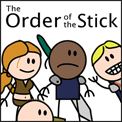What the Internet is For
Thanks, Raph (it's the "West" link). Now I know what the Internet is for.
Labels: Raph Koster, WoW, youtube

|
Recent Posts | |||
|
"Your 'reality', sir, is lies and balderdash and I'm delighted to say that I have no grasp of it whatsoever." — Karl Friedrich Hieronymus, Freiherr von Münchhausen |
||||
Thanks, Raph (it's the "West" link). Now I know what the Internet is for.
Labels: Raph Koster, WoW, youtube
I've blatantly ripped this link from Raph Koster, but the title is just too tempting not to plagiarize.
Named for the student of Pythagoras who is credited with discovering irrational numbers, Hippasus is a new MMO designed to teach math by casting players in the roles of "arithmancers," sorcerers who perform their magic by leveraging mathematics. From the website:
I think a game like this was due for some time. Notice how the creators of this game are keying on a number of features of multiplayer games that have yet to be fully explored and understood: catering to both newbies and experienced users, building and leveraging the sense of community, using game incentives to achieve real-world change, and using education as both a cause and effect of gameplay. I would be very interested to see how the game plays and will keep you posted of updates when/if I encounter them.The purpose of Hippasus is to give users a both fun and educational experience. For those users unfamiliar or not confident with principles of mathematics the game helps to both educate and encourage. The purpose is to provide concrete and exciting meaning to concepts that are often considered to be vague or esoteric and to give players a better understanding of the way their world works. For users who are confident and experienced the game provides a sandbox allowing them to test and visualize mathematical ideas, as well as a social world in which mathematical achievement is linked to power, influence and respect.
With the widespread use of online games has come virtual communities, societies and even economies that have had a direct impact on the world that we live in. It is our goal to positively contribute to society through this game by helping players to develop a greater appreciation for and understanding of the world that we live in, with hopes of encouraging those would would otherwise give up on mathematics and related fields.
Labels: Game, MMO, Raph Koster
Many thanks to the inimitable Raph Koster. I present: WoW DDR.
Labels: DDR, Game, Humor, Raph Koster, WoW
Raph Koster pointed out this article on BBC News, entitled "Computer game to boost key skills" (emphasis mine):
While this particular incidence may be unusually effective and not necessarily indicative of the power of edu-tainment in general, as anecdotal evidence, this is huge.Computer science teachers at West Nottinghamshire College were struggling to get their teenage students into literacy and numeracy classes.
So they took apart Atari's popular computer game Neverwinter Nights and rebuilt it with educational challenges the player must meet to progress.
Success rates in key skills at the Mansfield college has trebled to 94%.
[Nigel Oldman, one of the people who helped transform the game into a learning tool] said: "The little Herberts had realised that not attending their literacy and numeracy key skills classes was not going to affect their vocational qualifications."
"We would be flushing them out of the canteen, chasing them all over the place and they would just say: 'we did literacy and numeracy at school and we've never had to use it since'.
"We were struggling and we had had enough - so we decided we needed something that would attract them."
... [So,] "We ripped the game apart and rebuilt it to deliver educational content," he added.
Players are invited to pick a character and go on a quest in which they have to make decisions about what to take and how to progress using mathematics and their literacy skills.
Mr. Oldman explained: "For example, before they set off in their galleon they have to fill it with the things they are going to need. This requires them to work out the area of the ship and how much they can manage to bring.
"Some students managed it, others sank on the way and never progressed to the next level.
"They would come knocking on the staff room door and wouldn't let us go until we had taught them how to calculate area."
Educators often talk about a lack of motivation being one of the biggest obstacles to teaching. And games, after all, are nothing more than organized systems of incentives: if you want to "win the game", then you have to follow the rules. As Mr. Koster himself maintains, all games are educational. The reason they're compelling to the player is because he wants to figure it out, so he can get that feeling of triumph when he masters the system, beats his friend, unlocks the final level.
What I think is most interesting about this point is that it illustrates a number of key factors in maintaining the fun of a game while still achieving an educational goal. The way I see it, the Neverwinter Nights edu-mod succeeded because its creators made certain specific design choices.
First, this was a game the required math to advance. It was not a "math game". Many "educational" games are simply boring games wrapped around a series of math problems. There's not much fun in that. If the game itself is not compelling; if you finish the game and don't say "let's play again!" then it's just not a fun game, and its usefulness as an incentivizing factor disappears. The game in the article was based on a highly successful and well-polished, mass-market video game and then tailored to better suit an educational purpose.
Second, the educational goal of the mod's creators was achieved by putting it on a critical path to the in-game goals. Or, put another way, the story provided some goal (say, that the hero cross an ocean with all of the stuff he needs), and the player needed to use his math skills to figure out how to accomplish it (by figuring out the area of the ship's deck). The in-game goal was compelling enough to incentivize the player to perform this other task. From an in-game perspective, the math itself was a secondary goal, even though this was the designers' purpose all along.
I think this is a fascinating story. It would be interesting to determine whether other examples of particularly successful educational games follow this formula, as well. Please post suggestions in the comments if you know of any.
Labels: Education, Raph Koster
This article was making its rounds last week, but remaining true to my own schedule, I figured I'd share it late.
Ernest Adams, author of a number of books on game design, wrote an article for Next Generation entitled "50 books for Everyone in the Game Industry", highlighting 50 of the most influential and insightful works on the topic to date. He breaks them down into twelve categories, such as theory, business, and the history of games, attempting to cover a very broad range of topics that the gaming industry deals with. One of his topics is "inspirations," books "whose influence can be felt in many games" and "have helped make the game industry what it is today":
As for the rest of the list, I've only read one of the books: Edward Tufte's The Visual Display of Quantitative Information, which I got after attending the author's seminar on visual design a few years ago. I got a lot out of it, and had a chance to speak to the man briefly afterwards. I brought up the topic of user interface design and asked him what he thought of the fact that UI design is not treated as a discipline in its own right. He responded: "That's because it's a solved problem." I was shocked. It was as if, to him, it was somehow entirely clear what the best way to convey information to a user is, and what is the most efficient way to gather input from him. He couldn't have meant that, could he? Even after thinking it over for a good 3 or 4 years since the seminar, it seems obvious that he meant just that. Either he didn't understand my point or he doesn't know what he's talking about.
For those looking for the whole list, I've reproduced it here in title order:
Labels: Raph Koster
Ralph Koster has a cool article on his blog called What the Web and Games have to Teach Each Other. As a web guy and a game guy, I found this very interesting and would like to expand on the topic a bit, but no time to do so now. It'll just have to wait for a future post.
Labels: game design, Raph Koster

|


|